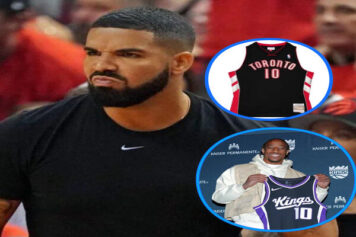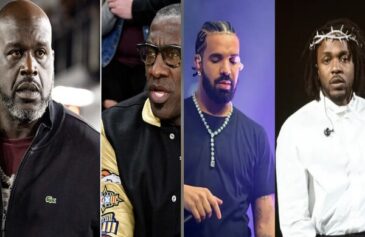Some artists yearn for it, while others say it doesn’t move them at all, but the Grammys are the definitive trophy for mainstream musical recognition.
Another Grammys has come and gone. A substantial number of people in the music industry, as well as on the outside, believe that the they are the true marker for the acumen and aptitude of a creative mind.
Over the past 20 years, there have been innumerable lyrics and interviews in which some of our favorite artists stated that a Grammy Award will not make or break who they are as individuals and as musicians.
Every year, there will be yet another round of sour grapes either from the offended party or someone within their camp, stating that a travesty took place.
I’ve witnessed a travesty or two when it comes to the Recording Academy of America choosing what it believed was the best representation of black music in the areas of R&B and Hip-Hop, and who is and isn’t considered worthy of mention.
The Grammys have been around for 61 years and some of the greatest artists ever have never won one.
Bob Marley, Chuck Berry, Busta Rhymes (11 nominations), Depeche Mode, Nas (13 nominations), Nicki Minaj (10 nominations), Public Enemy (5 nominations), Tupac (7 nominations) and Snoop Dogg (17 nominations) have never taken home the Grammy gold.
Last year, Jay Z went home empty-handed after being nominated for eight awards.
Every year, untold dozens of think pieces, blogs, Facebook and Twitter musings will arise to speak of how the Grammys have always been biased against hip-hop music.
Indeed, they’ll inevitably speak on DJ Jazzy Jeff and the Fresh Prince ’89 Grammy being presented off the air.
But that didn’t stop hip-hop artists from dreaming of the day they were onstage accepting the award. Nor did it stop black people from watching the program altogether.
The electing body for the Recording Academy has always been a significantly older demographic.
It has proven difficult for some of them to fully appreciate the nuances of certain black music and it is nearly impossible for them to understand the importance of culture, context and street cred as it relates to popularity.
That being said, there has never been a purely hip-hop album to win Album of the Year.
https://www.youtube.com/watch?v=zJWjsBnITok
Lauryn Hill’s The Miseducation of Lauryn Hill and Outkast’s Speakerboxxx/The Love Below won in 1999 and 2004 respectively, but neither of these offerings are something anyone would consider to be a straight line rap album because of the amount of R&B and pop-style singing on both.
This makes the second straight year that hip-hop failed to snag a Album of the Year in a category in which most of the nominees were hip-hop artists. Kacey Musgraves “Golden Hour” beat out the likes of Cardi B, Drake, Kendrick Lamar, Post Malone and Janelle Monae in the category.
Despite that, “This is America” won Record of the Year for Childish Gambino and earned Donald Glover and Ludwig Goransson the Grammy for Song of the Year as well.
And Cardi made history by becoming the first solo female rapper to win Best Rap Album.
Best R&B album went to H.E.R. for her self-titled album that she revealed was actually an EP last night.
Jennifer Lopez punctuates the lack Grammy respect for black culture, as this would have never happened in reverse. At a show where a black cultural phenomenon is celebrated (Motown) in February (Black History Month), a Latina woman who was never known as a vocalist let alone an R&B singer is asked to perform.
Never mind the Motown folks being okay with it, likely because the contemporary relevance of J-Lo could help get them some checks. The Grammys didn’t think twice about it after all these years of black people complaining about the mainstream commoditizing of black intellectual property.
Though many see it otherwise, as long as the mainstream award shows get to pick who and what type of black music resonates, there will always be questions regarding who deserves to be crowned in hip-hop, R&B and beyond.



